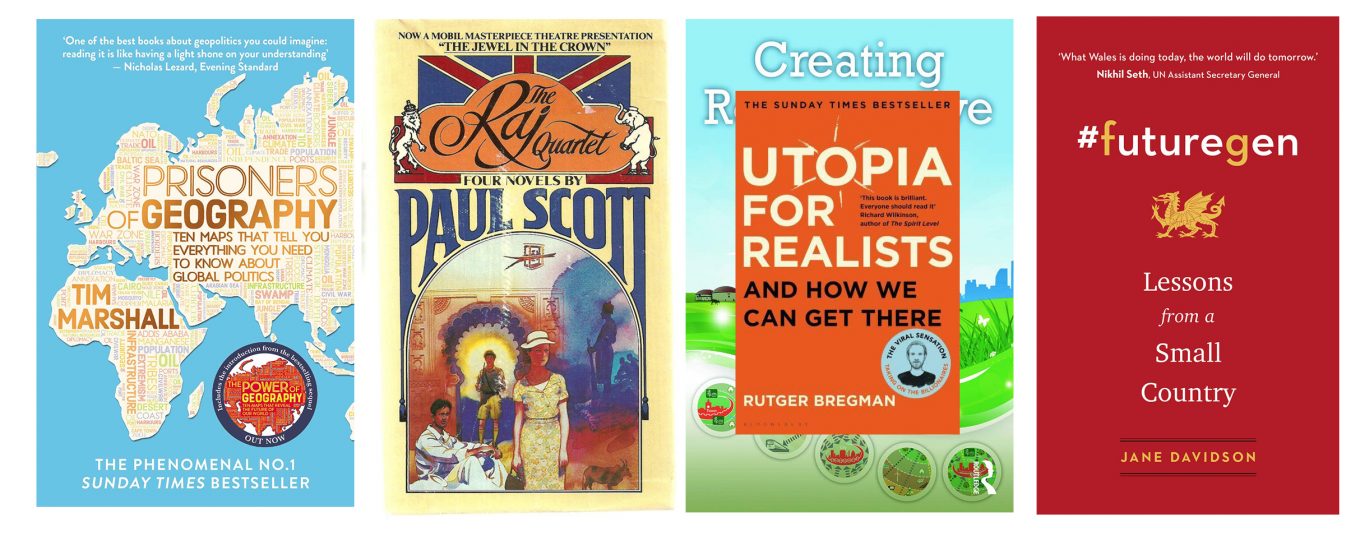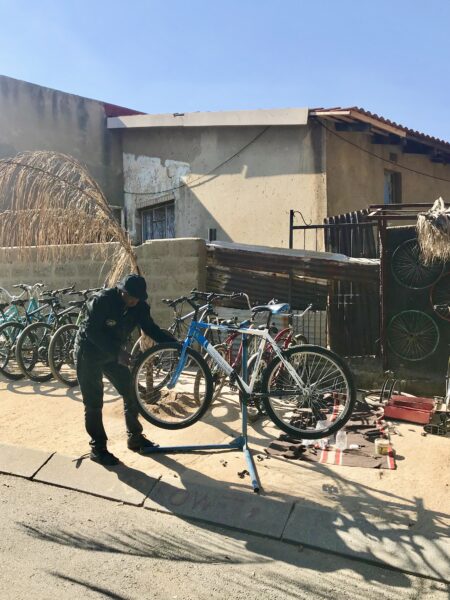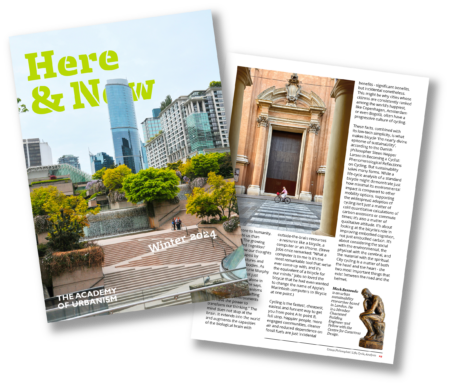With so many problems that we face, the question is not what to do, but how to make it happen. Nicholas Falk reviews a series of books that show how, and just as importantly how not to change course.
As the world continues to warm and nations seem powerless to do more than set targets. The big question is how we change course before it is too late. One of the problems is a lack of global perspective. While Western nations may take the blame for carbon-based industrialisation, the challenge has shifted to fast growing cities in the Global South. India’s population will soon exceed China as the world’s largest nation. Only 25% of women there have jobs, and only 30% of the population is urbanised, so the scope for change is enormous. Between now and 2050 more than half of the global population increase will happen in just eight countries. In addition to India these are the Democratic Republic of Congo, Egypt, Ethiopia, Nigeria, Pakistan and the United Republic of Tanzania, countries that are short of experienced professionals and with politicians who are to often corrupt.
In understanding the link between population, urbanisation and carbon emissions we could do worse than read Prisoners of Geography by Tim Marshall, a British journalist who specialises in international diplomacy. He makes a powerful case that with issues such as climate change ‘geography may not be the determining factor but it is certainly the most overlooked.’[1] In ten short chapters he brings out the importance of rivers, mountains and distance. In the Middle East he shows how ‘drawing lines on maps while disregarding the topography, and equally important, the geographical cultures in a given area is a recipe for trouble.’ In a similar vein he shows how Russia’s expansion into the Crimea and then the Ukraine was absolutely predictable given its lack of warm water ports and mountains that would provide defensive barriers on its western flank.
The rapid growth of urbanisation and wellbeing in Europe benefitted from a climate with the right amount of rainfall and soil to grow crops on a large scale. In contrast the situation in most of Africa is unsuited to carrying more people, its vast distances being too great to bridge economically. The result has been the explosive growth of cities and tribal conflicts over access to water and other resources elsewhere. So far, neither ideas nor political leaders have been able to unite people on the scale needed to address these issues. That bodes ill for our chances of addressing the global impacts of climate change and population movement. Technology may transcend mountains and rivers, as railways and then airlines did in the past but, as Tim Marshall concludes pessimistically, ‘we are still imprisoned in own minds.’
However anyone thinking that the west has the answers should read Paul Scott’s magnificent Raj Quarter, particularly the fourth book that is called poignantly A Division Of The Spoils.[2] He describes the appalling failure of the British to exit India without a huge loss of life, blaming it on ignorance, complacency and racism in the army and the political class. Under British rule, India’ s share of the world economy declined from 24% in 1700 to 4% in 1950. The rulers in Delhi and London were quite out of touch with popular feelings, and sought to placate an electorate who were largely misinformed. A superb new novel, The Age of Vice by Indian journalist Deepti Kappor brings the story up to date, and reveals the corruption in planning grand projects to replace slums and small farms with Western style developments around the biggest cities. Similar mistakes were made much more recently by the Americans in Iraq and then Afghanistan, as tribal and religious conflicts ruled out attempts to create democracies on a Western model. Opportunities for misdirecting funds through corruption or a misguided faith in private businesses or consultants waste resources and lives on an epic scale.
So where does that leave those trying to bring about rapid but peaceful change to tackle climate change and inequality? At long last international organisations like The World Bank and the United Nations recognise the power of cities to bring about change, given the opportunity. Books based on case studies by popular writers and broadcasters such as Herbie Girardet or Rutger Bregman provide inspiration from cities that have faced up to the challenges [3] Books such as these provide important evidence on the value of devolving power away from central governments to cities and sub-regions where local authorities, colleges, businesses and communities can join forces in common endeavours.
To my mind the most promising model of all comes from Jane Davidson in a shortbook called Futuregen. She is a former Welsh academic who became Minister for Environment, Sustainability and Housing in the Welsh Assembly. She introduced their pioneering Wellbeing of Future Generations Act in 2015[4] requiring every public body in Wales to assess the impact of their policies on the wellbeing of future generations. Through this the small country of Wales has started a process that could spread everywhere. Achievements include the commitment of Transport for Wales to electrify the lines that serve the valleys, with half the energy being produced in Wales. Another is using nature in Swansea, once the most contaminated city in Wales, to bring nature into the heart of the city to provide space for wildlife and give people pleasure. Young people taking over the land shows what is possible through resolving to implement a sustainability revolution. Significantly her book not only shows what can be done, but provides web links to sources of information that can be easily copied into reports and subsequent policies. The time to change course is now!
[1] Tim Marshall, Prisoners of Geography: Ten Maps That Tell You Everything You Need To Know About Global Politics, Elliott & Thompson, 2021
[2] Paul Scott, The Raj Quarter, Penguin 1984
[3] Herbert Girardet, Creating Regenerative Cities, Rutger Bregman, Utopia for Realists: And How We Can Get There, 2017
[4] Jane Davidson, Futuregen: Lessons From A Small Country, 2020 www.janedavidson.wales






